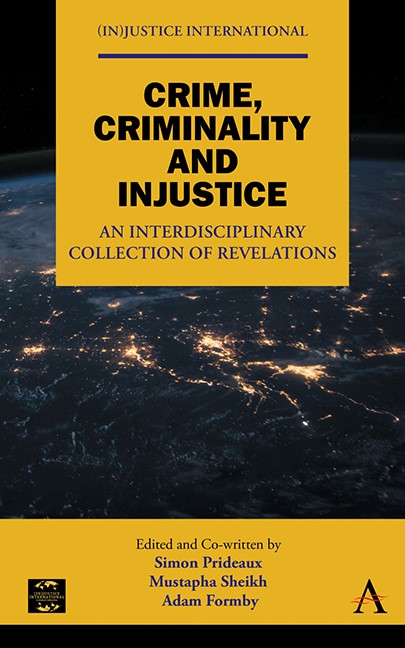Book contents
- Frontmatter
- Dedication
- Contents
- Acknowledgements
- List of Editors and Contributors
- Editor’s Introduction to the Book
- Part One Incarceration, Cultural Destruction and Ecocide: The Alienation of Ethnic Minorities, Nature and Indigenous Peoples
- Part Two The Impoverishment, Exclusion and Maltreatment of the Working Poor
- Part Three Disability, Poverty and Neglect
- Part Four Youth, Gender, Migration and Human Trafficking
- Concluding Remarks
- Index
Chapter Two - Will It Ever End?’ The Continuous Cycle of Inequalities Faced by Romani Gypsy, Roma Traveller Populations
Published online by Cambridge University Press: 14 November 2023
- Frontmatter
- Dedication
- Contents
- Acknowledgements
- List of Editors and Contributors
- Editor’s Introduction to the Book
- Part One Incarceration, Cultural Destruction and Ecocide: The Alienation of Ethnic Minorities, Nature and Indigenous Peoples
- Part Two The Impoverishment, Exclusion and Maltreatment of the Working Poor
- Part Three Disability, Poverty and Neglect
- Part Four Youth, Gender, Migration and Human Trafficking
- Concluding Remarks
- Index
Summary
Introduction
Romani and Gypsy Travellers have contributed to British society for centuries. The first arrival of Romani’s in Britain dates between 1427 and 1508 (Foster and Norton 2012). The direct ancestors of one of the authors, a Romani Gypsy, can be traced back to 1490, and are buried under the foundations of the All Hallows Church in London. There is also DNA evidence from the mid-eleventh century that suggests some arrived via a Viking enslavement from the eastern Mediterranean (Pitts 2006). There is huge diversity among the Romani population depending on their geographical location. They include Romanichals in the United Kingdom; Kalé in Wales, Finland and Sweden; alongside Manouche from France and Sinti from Germany, Poland, Austria and Italy (Toninato 2009). Other distinct groups include English, Scottish, Welsh, and Irish Travellers (Traveller Movement 2021), also known as Pavees or Mincéirs ( Joyce 2018). There is evidence that places Irish Travellers as far back as the fifth century AD, although they have also been referred to as the descendants of the dispossessed from the war with Oliver Cromwell in the seventeenth century (Foster and Norton 2012:87).
Romani Gypsy Traveller populations are not homogenous, but nomadism, extended family networks and unique languages (Millan and Smith 2019:1) are central to their cultural identity. As the title of this chapter suggests, their history is also coloured with centuries of inequalities and discrimination. This chapter outlines the significant inequalities and disadvantages they face across the social policy spectrum (employment, education, housing and health), before focusing on the impact of contemporary issues such as austerity policies, the COVID-19 pandemic and the Police, Crime, Sentencing and Courts (PCSC) Bill. The chapter includes both academic and grey literature, as well informal conversations with Romani, Gypsy Travellers. In a small effort to break the continuous cycle of inequalities, this chapter ends with recommendations for how ‘gorgers’ (non-Gypsies) can be allies.
An Important Note about Terminology and the Research Cited
The generic term Gypsy, Roma and Traveller (GRT), often used to describe members of ethnic groups who are or have been traditionally nomadic (Rogers 2021), is a problematic term due to its capacity to erase.
- Type
- Chapter
- Information
- Crime, Criminality and InjusticeAn Interdisciplinary Collection of Revelations, pp. 23 - 36Publisher: Anthem PressPrint publication year: 2023

